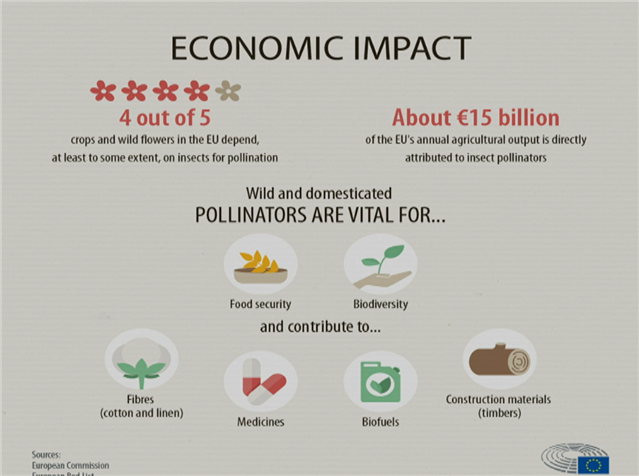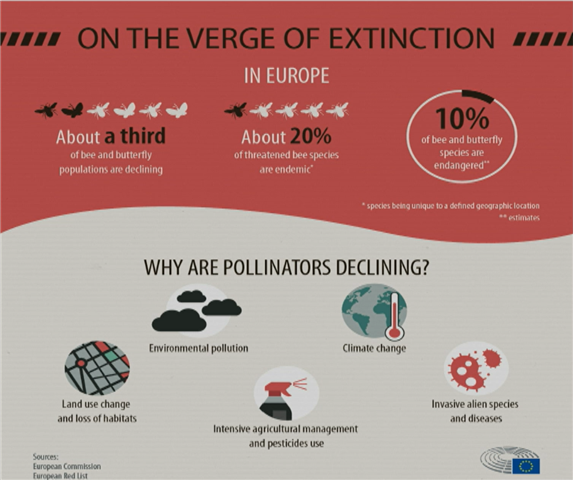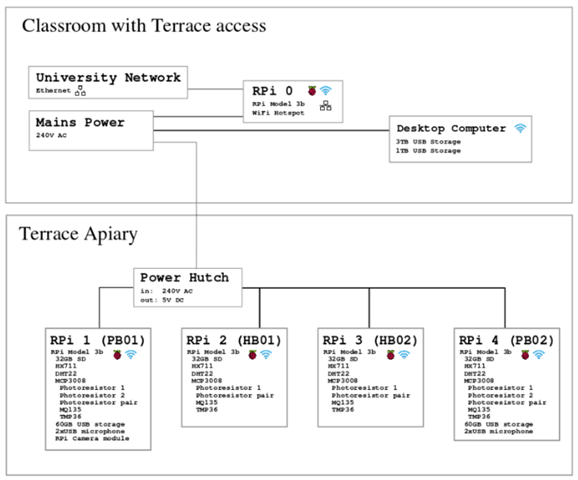Smart Hive? I thought that was about controlling your Central Heating …
Hives certainly featured in the May IET Central London Network evening lecture, but as the home for Honeybees, a species vital for both our food supply and the general ecosystem. Dr Gordon Hunter, Associate Professor of Mathematics and Computer Science at Kingston University explained how monitoring bees in hives can detect and predict important events in the bee colony’s life cycle.

Dr Hunter explained that honey production is somewhat of a sideshow, and the main purpose of bees is the pollination of crops and other flowering plants. But numbers are in decline due to a number of reasons including parasites e.g. the Varroa Mite; habitat changes; pesticides; poor husbandry of bees (apiculture); and perhaps an unknown in the shape of Mobile Telecommunications.

The proposed solution is to monitor the wellbeing of the bees with minimal invasion or interference, and this is where the technology begins. Two events that are particularly disruptive to a bee colony are the Queen dying (Queenlessness) or a Swarm; expert beekeepers claim that they can hear the pre-cursors to these events and the proposal is to use acoustic monitoring of the hive and AI driven processing to ultimately predict and provide advance warning to the beekeeper. The beekeeper can then stage an intervention and preserve the ability of the hive to pollinate and produce honey. Visual monitoring can enter the mix to detect the presence of mites.
The AI can be in the form of a Multi-Layer Perceptron Artificial Neural Network (MLP) or Logistic Regression (LR) Supervised Learning for the acoustic monitoring and a Convolutional Neural Network (CNN) to process the images. A link is provided at the end of this Blog to the IET TV recording of the lecture where Dr Hunter explains each concept in greater detail.
So, can you make Smart Hives that can perform this monitoring? Kingston University has undertaken research into using a Raspberry PI device attached to the hive along with an array of low-cost sensors. Several problems had to be overcome such as provision of power, network bandwidth and the storage required to accommodate the sheer volume of acoustic data being recorded, but viable devices could be made available in the £100 - £300 range. The AI processing has so far been done remotely, but the proposed solution seems viable.

Before we went into the members lounge for networking there was a chance for the audience to ask Dr Hunter some questions and one in particular caused us all to stop and think. What if insect recordings could be used by AI to malevolently influence those insects e.g. trigger a locust swarm??
The recording of the lecture can be found on IET TV at the following link: https://tv.theiet.org/?videoid=17556
Don’t forget to like this Blog and add your comments below:
-

Pedro Osorio
-
Cancel
-
Vote Up
0
Vote Down
-
-
Sign in to reply
-
More
-
Cancel
Comment-

Pedro Osorio
-
Cancel
-
Vote Up
0
Vote Down
-
-
Sign in to reply
-
More
-
Cancel
Children